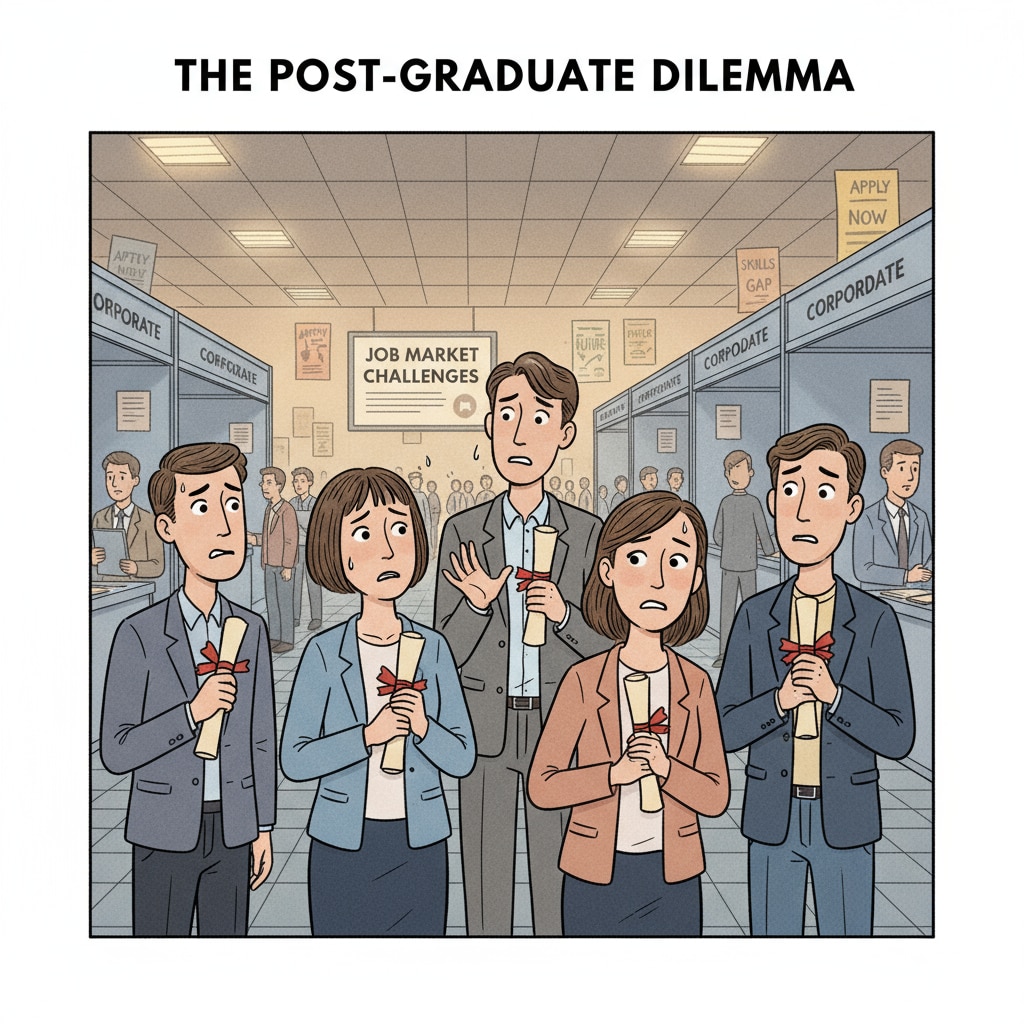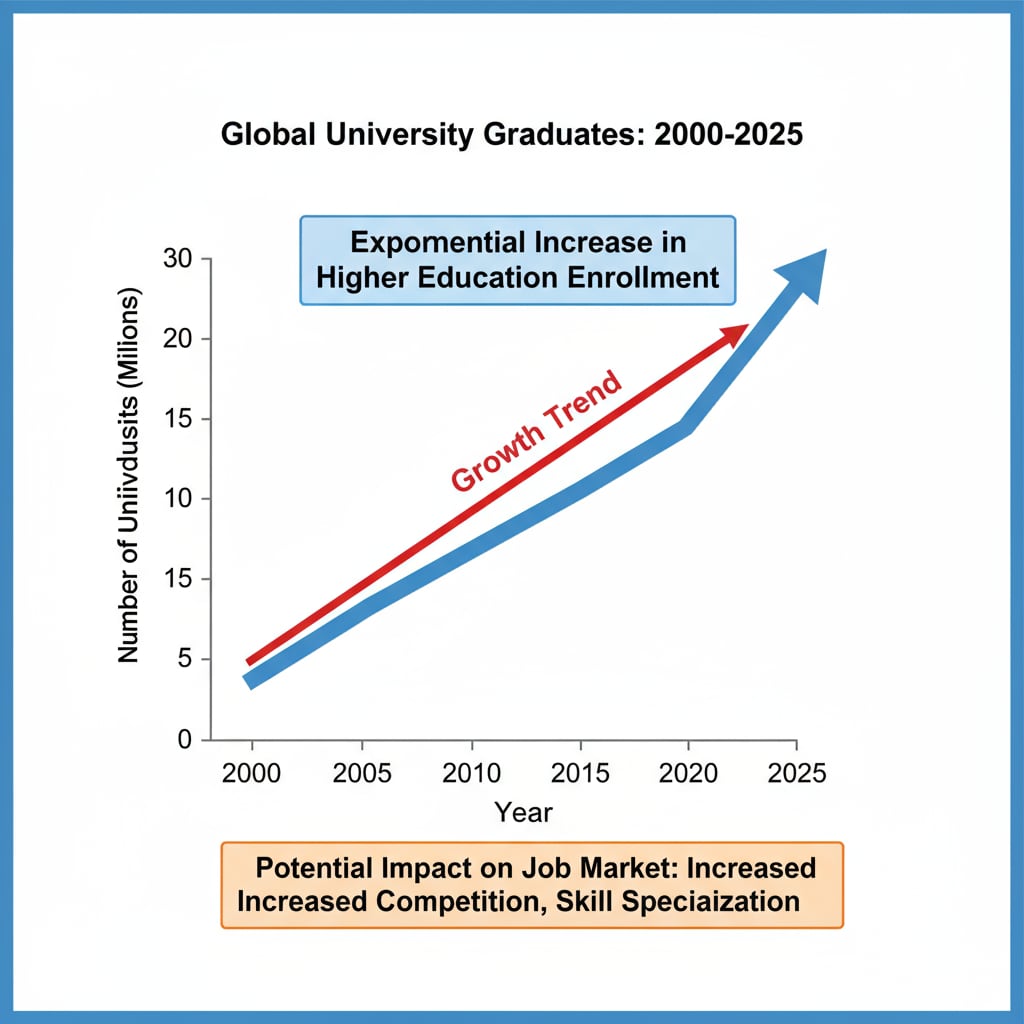In today’s job market, the significance of university degrees in career development has undergone a notable transformation. The once-guaranteed path from a degree to a stable, high-paying job is no longer as straightforward. As higher education becomes more widespread, the value of a university degree seems to be losing its traditional allure.

This phenomenon has led to a growing concern about the actual worth of degrees in the current job market.
The Changing Landscape of University Degrees
The expansion of higher education has made university degrees more accessible than ever. However, this has also led to an oversupply of degree holders in the job market. According to data from the National Center for Education Statistics, the number of college graduates has been steadily increasing over the past few decades. As a result, the competition for jobs has become fierce, and having a degree alone is no longer a surefire ticket to a good career. For example, many highly qualified graduates are finding it difficult to secure positions that match their educational achievements.

The Disconnect Between Degrees and Job Market Returns
There is a growing gap between the expectations associated with a university degree and the actual returns in the job market. Many graduates are burdened with student loan debts but are unable to find jobs that offer sufficient salaries to pay off these debts in a timely manner. Moreover, the skills learned during university may not always align with the requirements of the modern job market. As reported by the World Economic Forum, the job market is constantly evolving, and employers are seeking candidates with a combination of technical skills, soft skills, and adaptability. Unfortunately, traditional university curricula may not adequately prepare students for these changing demands.
Another aspect is the prevalence of jobs that do not necessarily require a university degree but still offer decent pay and career prospects. This further challenges the long-held belief that a degree is essential for a successful career. For instance, some vocational and trade jobs, such as plumbing and electrician work, are in high demand and can provide a stable income.
Readability guidance: In this section, we have presented the challenges faced by degree holders in the job market. The paragraphs are short to enhance readability. We have used data from reliable sources to support our points and included examples to illustrate the disconnect between degrees and job market returns. Transition words like “however”, “moreover”, and “for instance” have been used to make the flow of ideas smoother.
The Role of K12 Education in Adapting to the New Reality
Given the changing dynamics of the job market and the evolving value of university degrees, K12 education needs to play a crucial role in preparing students for the future. Instead of solely focusing on academic achievements and college admissions, K12 institutions should aim to provide a more well-rounded education. This includes incorporating vocational and technical training, as well as emphasizing the development of soft skills such as communication, teamwork, and problem-solving.
By exposing students to a variety of career paths early on, K12 education can help them make more informed decisions about their future. Additionally, partnerships with local businesses and industries can provide students with real-world experiences and insights into the job market. This way, students will be better equipped to handle the challenges of the modern job market, whether they choose to pursue a university degree or explore alternative career options.
Readability guidance: Here, we have discussed how K12 education can adapt to the new situation. The paragraphs are concise, presenting clear ideas. We have used words like “instead of”, “additionally”, and “this way” as transition words to connect different thoughts.
In conclusion, the value of university degrees in the current job market is undergoing a significant shift. While degrees still hold importance in certain fields, the traditional guarantee of a prosperous career is no longer a certainty. K12 education has a vital role to play in preparing students for this new reality. By reevaluating its approach and focusing on a more comprehensive education, K12 can help students navigate the complex job market and achieve successful career development. University degrees, job market, and career development are intertwined, and it is essential for all stakeholders to adapt to these changing circumstances.


